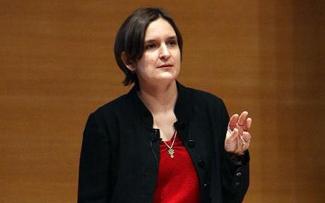Smart congestion pricing: Testing travel incentives to reduce congestion in Bangalore
This project will use a novel data collection strategy using smartphones and a field experiment to provide evidence on traffic congestion inefficiencies in Bangalore, India. It will also evaluate policy levers to counter congestion using monetary incentives and information.
Severe peak-time traffic congestion is endemic in large cities in developing countries, both on roads as well as in public transportation, with important negative consequences:
- Long travel delays.
- Lower urban agglomeration benefits (thus potentially limiting productivity and growth).
- Inefficient use of the existing urban transportation infrastructure - which may already be inadequate.
- Indirect costs such as low returns from providing additional road infrastructure.
- High levels of pollution.
This experiment will evaluate hypothetical congestion pricing schemes in Bangalore, using GPS-enabled smartphones as a tool for data collection, enforcement and communication. Selected Bangalore commuters will be invited to install a non-intrusive app on their GPS-enabled smartphone, which will collect fine location data. (Participants without a compatible smartphone will receive an inexpensive device for the duration of the study.)
Study participants will be randomly selected to receive personalized monetary travel incentives for a period of several weeks. The incentives are designed to dissuade travel at congested times and through congested areas.
Individuals in the treatment group will be charged depending on their travel behaviour, as measured by the smartphone app. These charges will be deducted from an initial lump-sum grant. How study participants respond to this congestion pricing scheme is informative about their travel preferences.
A separate treatment will inform users about average travel times at different times, and measure behaviour changes. We know little about whether commuters in cities like Bangalore optimize effectively, and under-experimentation, if present, may have individual effects on travel delay, as well as spill-over effects on traffic congestion.
Despite strong public and policy interest in policies related to traffic congestion, urban transportation generally lags in terms of evidence-based policy. For example, there is limited evidence on the effectiveness of various policy levers to contain congestion. Building on previous engagements, the results of this study will be presented to the Transport Department in the Bangalore government to contribute to policymakers’ better understanding of the preferences of urban travellers. This knowledge will inform future policies to reduce congestion by providing predictions of how travellers are likely to respond.
As large cities in Asia and Africa are projected to add hundreds of millions of dwellers over the coming decades (UN 2014), there is a pressing need to improve our understanding of how people make travel decisions, and to experiment with new technologies to realign private and social interest. This study will provide rigorous evidence on the ability of pricing to alter the travel behaviour of urban commuters.





